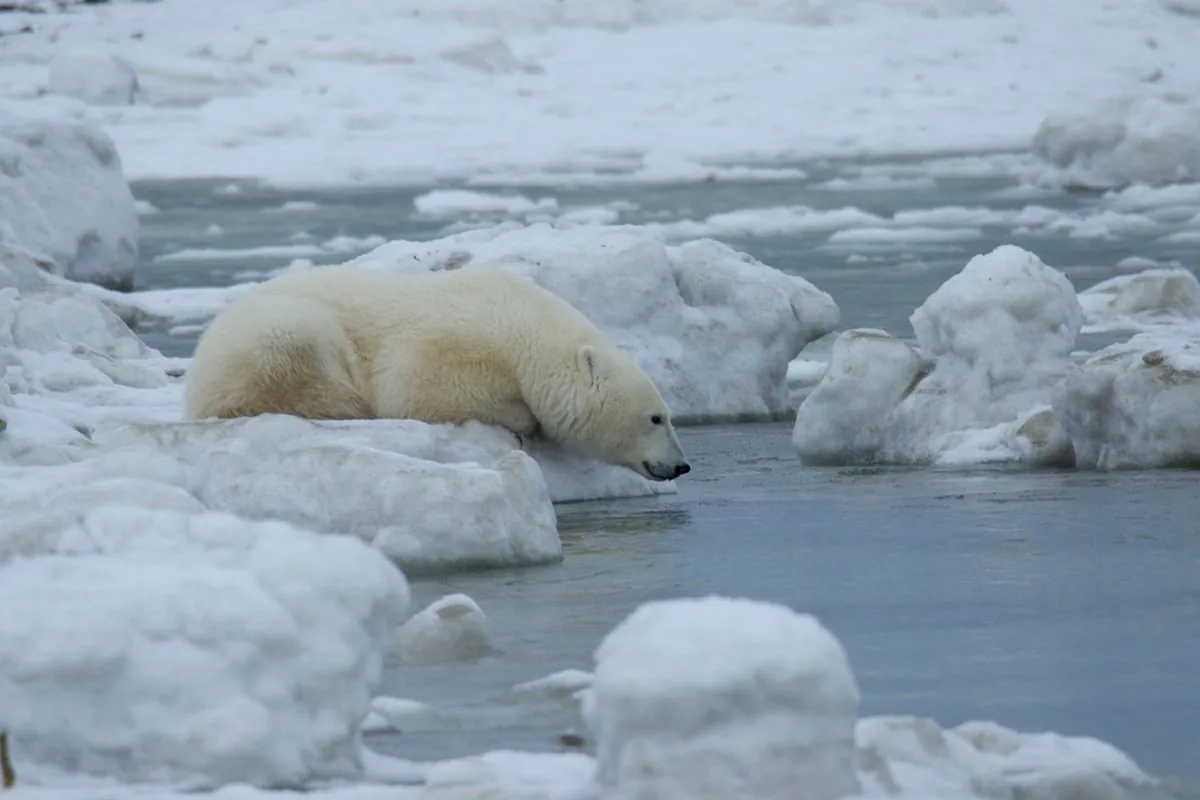In the vast expanse of Canada's Hudson Bay, a critical environmental shift is unfolding. The Western Hudson Bay polar bear population, once thriving, has dwindled to approximately 600 individuals—half of what it was four decades ago. This alarming decline serves as a stark indicator of the profound changes occurring in the Arctic ecosystem due to climate change.
Geoff York, research director at Polar Bear International, warns that without significant reductions in greenhouse gas emissions, this population could vanish entirely by the end of the century. The situation in Hudson Bay, the world's second-largest bay, mirrors a broader transformation of Arctic ecosystems into more temperate, open-ocean environments.
The Arctic's warming rate, about twice the global average, is reshaping the region's delicate balance. Sea ice, which typically reflects 80% of sunlight back into space, is diminishing rapidly. This change affects not only polar bears but the entire marine food web, from microscopic algae to massive whales.
In the Arctic, fat is not just beneficial—it's essential for survival. Kristin Laidre, a marine mammal scientist at the University of Washington, emphasizes this point: "To live in the Arctic you need to be fat, or live fat, or both." Polar bears, the quintessential Arctic mammals, exemplify this principle. Their milk contains an astounding 30% fat content, crucial for the rapid growth of cubs born in January and emerging in March weighing up to 25 pounds.
However, the changing climate is disrupting this finely tuned system. Sea ice, which polar bears use as a platform for hunting seals, is forming later and melting earlier each year. This shortened hunting season forces bears to spend more time on land, often pushing them to the brink of starvation.
Julienne Stroeve, a sea ice scientist at the University of Manitoba, notes that the entire marine ecosystem is tied to the seasonality of sea ice cover. As the ice retreats, it triggers a cascade of changes throughout the food web. High-fat Arctic plankton are being replaced by lower-fat southern species, altering the nutritional landscape for creatures higher up the chain, including the 55,000 beluga whales that inhabit Hudson Bay alongside the polar bears.
The impact extends beyond these iconic species. Copepods, tiny crustaceans considered the most abundant animals on Earth, play a crucial role in the Arctic food web. These lipid-rich organisms are a staple for bowhead whales, but their populations and timing are shifting with the changing climate.
"It's not that nothing lives out there. It's that the things that are living in the North are changing and looking a lot more like the South."
Recent studies paint a grim picture for the future. If global temperatures rise by another 1.3 to 1.4 degrees Celsius, the Western Hudson Bay polar bear population is likely to cross a point of no return. This potential loss is not just a tragedy for biodiversity; it's a profound shift in an ecosystem that has evolved over millennia.
As the Arctic transforms, it's not just wildlife at stake. The region, home to over 4 million people from various indigenous groups, faces unprecedented changes. The Northwest Passage, once impassable, is becoming increasingly navigable, potentially opening new shipping routes but also bringing new environmental challenges.
The fate of the Arctic's inhabitants hangs in the balance, with every minute of global carbon dioxide emissions—154 million pounds on average—tipping the scales further. As Stroeve poignantly notes, the survival of these magnificent creatures in such a harsh environment is a testament to nature's resilience. The question now is whether human actions will allow that resilience to prevail.
